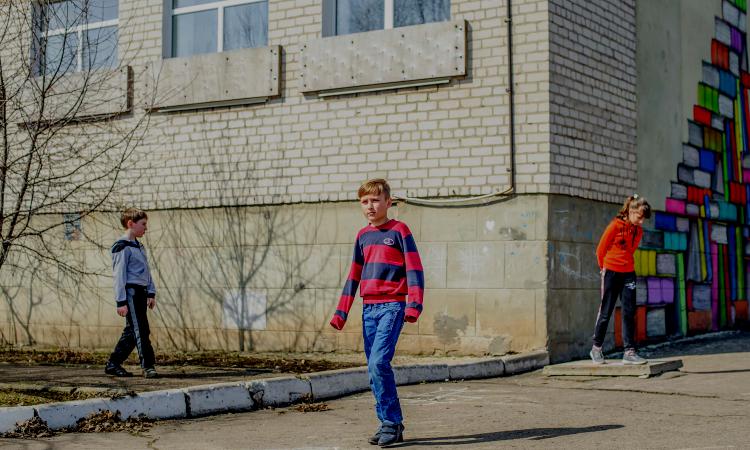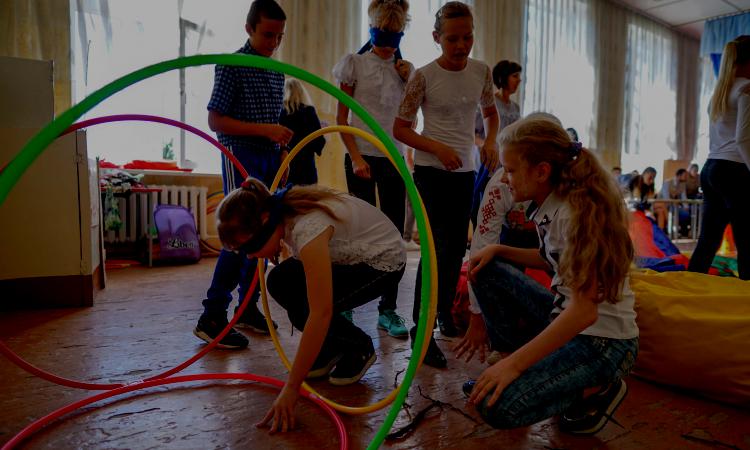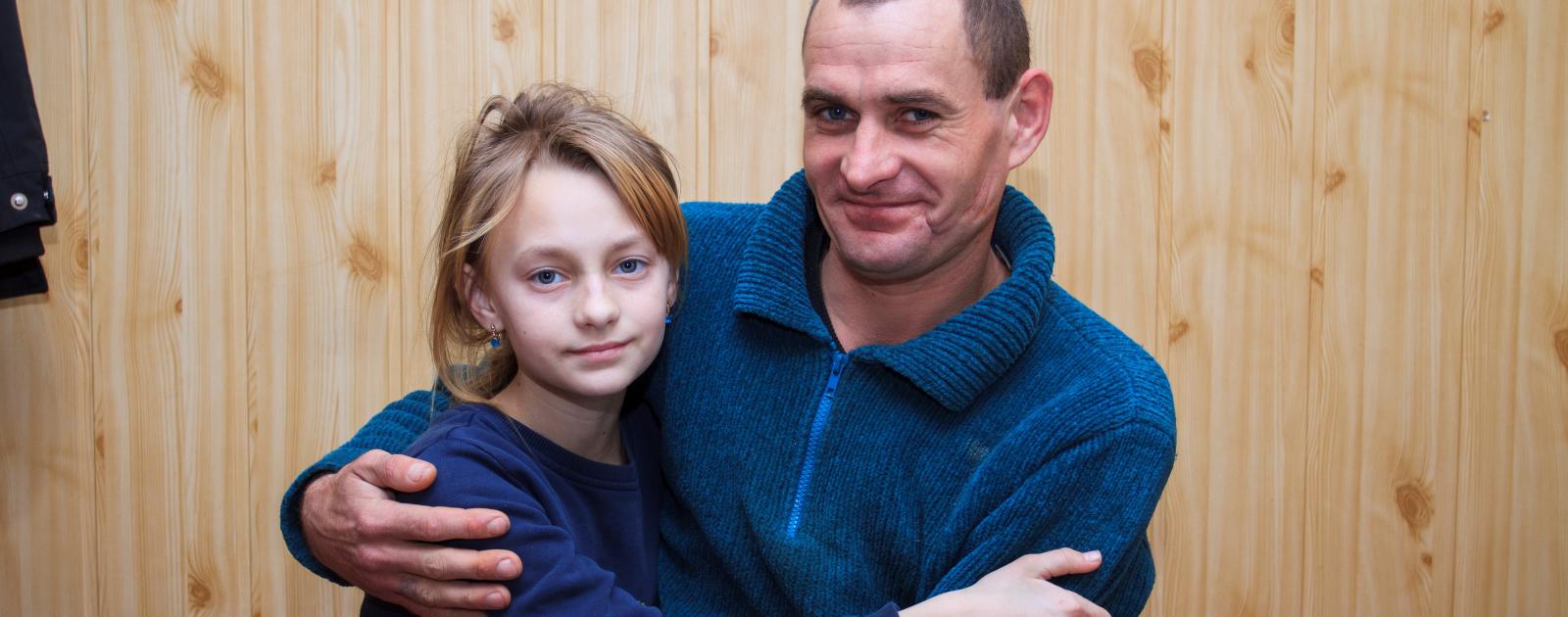
The bitter cold of this winter morning breaks through the clothes. A thin layer of snow screeches beneath the feet as we arrive at the old school in a village in the Ivano-Frankivsk oblast in the West of Ukraine. A door opens. The enveloping warmth of a fire invites you in. A small room serves as a home for 10-year-old Anya, her father, grandmother and grandfather. The 20 square metres can only accommodate the bare minimum: four beds, a small table, a stove and a few things.
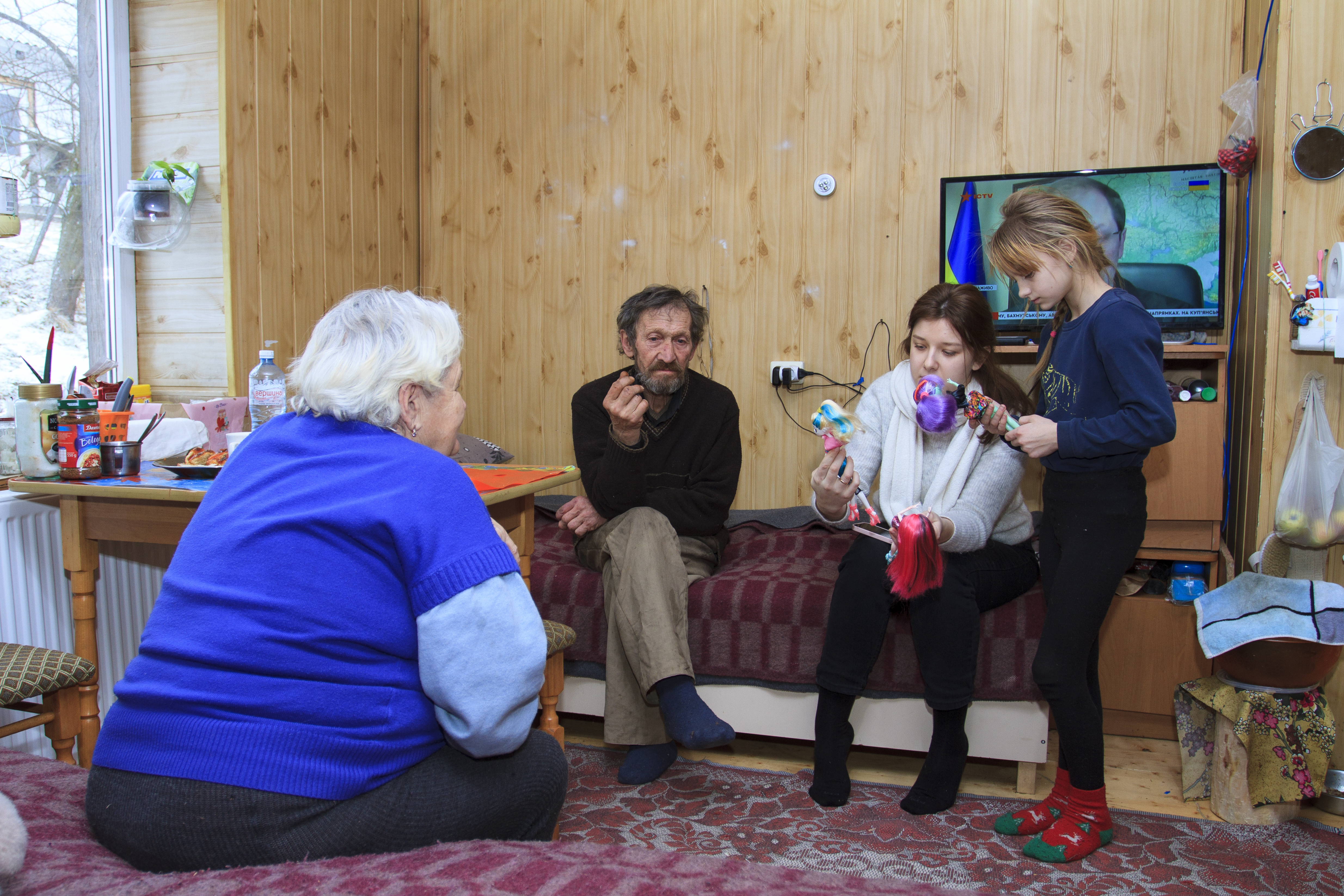
Anya shows the clothes she has sewn for her dolls.
"We come from the town of Bashtanka," says Olena, the grandmother in a bright blue knit. "It all started in February 2022. My son called me to tell me that a column of Russian tanks was approaching." Her voice breaks and her blue eyes fill with tears. "He told me to hide. We put Anya in the bathroom, covered her with cushions and lay down on top of her. The fighting started. The walls began to shake and the roof was falling down. After a while it got quiet. The next day, as I was walking home with a bucket of milk, I heard a plane. Then a huge explosion. I sat down and protected my head. The shock wave blew out the windows and destroyed the back of our barn. I don't know how we survived. That's when we realized we had to run away."
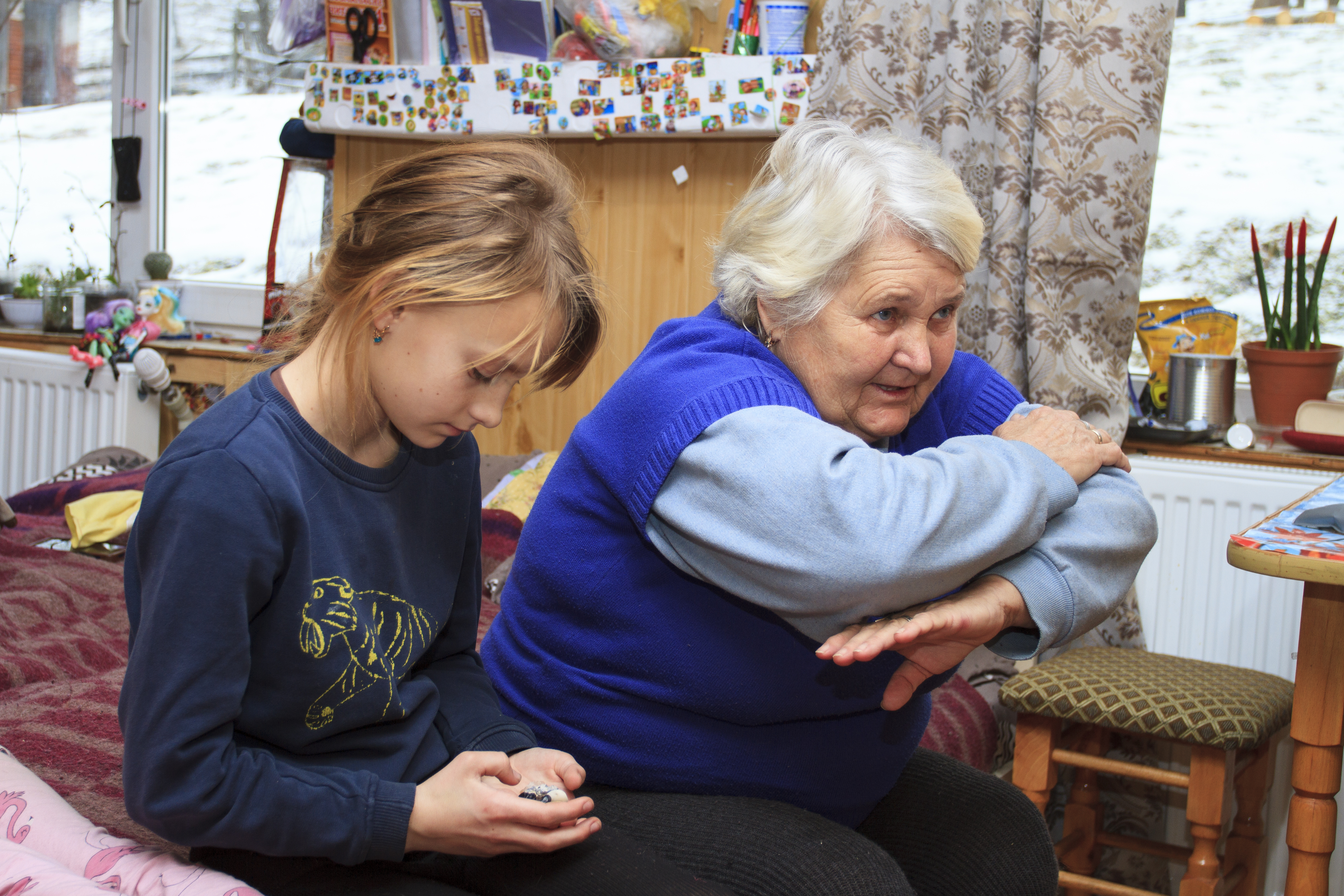
Olena describes the explosions the family experienced.
A year ago, their whole life changed. Like millions of others in Ukraine, Anya's family had to leave everything behind to find safety. Since August, the four of them have been living in this refurbished room in the old school.
"I'm glad Anya can go to school in this village," adds Olena. "I am in fourth grade," Anya continues. The pale-skinned girl with the long messy braid pulls a workbook from a drawer. "I'd like to be a maths teacher, because I'm very good with numbers," she explains. "She even counts faster than I do with the calculator," Olena laughs. Anya and her family are followed by a social worker from Terre des hommes. Among other things, he has helped Anya to receive psychological support, as well as a tablet to do her homework.
The social workers trained by Terre des hommes play a key role in the communities. They identify the most vulnerable displaced families and determine with them their most urgent needs. The social worker can provide direct support, for example by helping parents to fill in administrative documents or by organising psychosocial activities for the children. The social worker also acts as a link, for example by facilitating a medical visit.
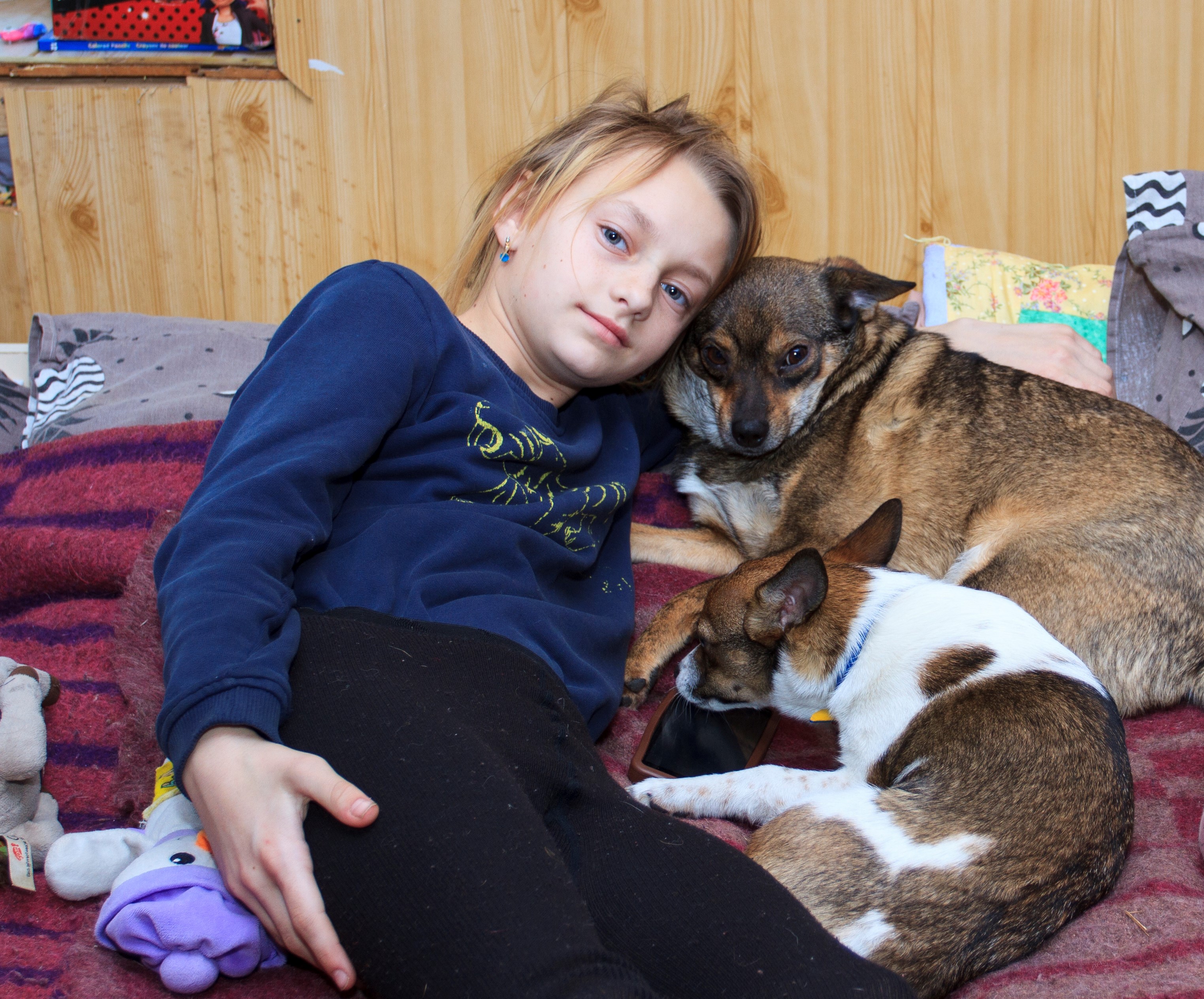
Knopa and her puppy are also part of the family. "The puppy was born here after we arrived," Anya recalls, "and Knopa knows how to react when you say 'Airplane'.
Terre des hommes teams are helping families displaced by the war in Ukraine, but also in Moldova, Romania and Hungary, whether they are trying to settle in their new lives or considering returning to their hometown. A year after the war began, many are indeed thinking of going back. But the fighting is still going on, creating uncertainty and an impossible dilemma. "I like it here, but I would also like to go back. I'd like to see Martyshka, my chicken, again. She was well-trained. I would say to her 'Martyshka, come here' and she would come," recalls Anya, with a wistful smile on her face.
Our activities are carried out within the framework of the project "SMILE - Support for children and their families during Migration and Integration in new Local Environments", implemented with the participation and financial support of the Crisis and Support Center of the Ministry of Europe and Foreign Affairs of France.
